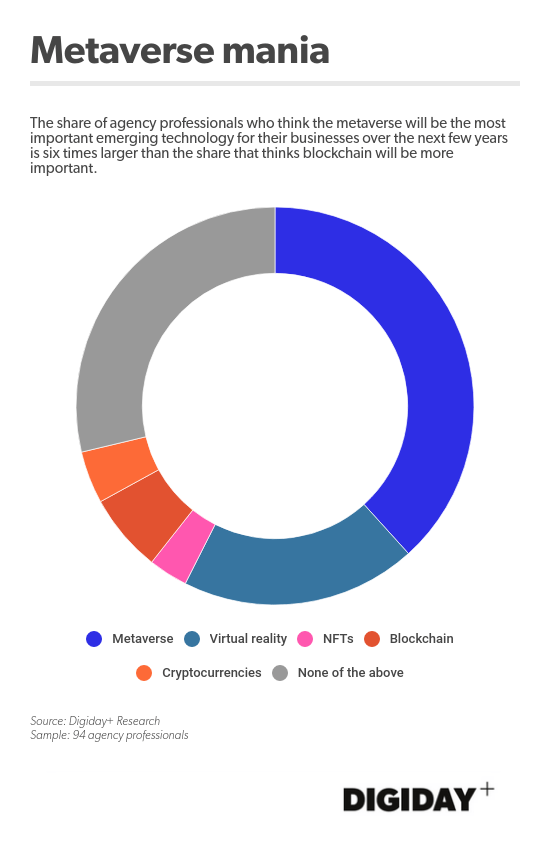Why Web3 and the metaverse shouldn’t be conflated: A Q&A with Matthew Ball
Last year, the concept of the metaverse entered the zeitgeist after Mark Zuckerberg proclaimed that Facebook — sorry, Meta — was pivoting to become a “metaverse company.” But futurists in Silicon Valley and beyond have been seriously discussing how to build the metaverse for much longer.
Matthew Ball is one of those visionaries. After stints as an executive at several prominent media and tech companies — most recently Amazon Studios, where he served as head of strategy between 2016 and 2018 — Ball currently works as the managing partner of the venture fund EpyllionCo, as well as a partner and advisor for other venture funds and investment groups operating in the gaming and metaverse space.
Ball is also known as a metaverse leader, largely due to the influence of his self-published essays on the topic, which helped bring the concept to the forefront of the public consciousness in recent years. The Washington Post mentioned Ball in its seminal April 2020 report connecting the metaverse to the gaming industry — and when the Chinese government-owned publication Security Times issued a public statement against the concept in August 2021, it cited Ball’s work.
Ball’s upcoming book, “The Metaverse: And How It Will Revolutionize Everything,” hits shelves on July 19. In advance of its publication, Digiday contacted Ball to learn more about his vision for the virtual world to come.
This interview has been lightly edited and condensed for clarity.
Is it problematic that people are conflating blockchain technology with the concept of the metaverse at the moment?
I wouldn’t say they’re inherently interrelated. What I like to remind people is that Web3, from my perspective, refers to philosophies and database technologies which may be relevant to the metaverse.
There are good reasons why the topics are conflated. Web3, by definition, succeeds Web2; the metaverse is described as a successor state to the internet. I would separate them. From my perspective, the metaverse is primarily talking about an interconnected network of real-time-rendered 3D virtual worlds, and Web3 is referring to a decentralized internet, both technologically and philosophically. Naturally, large-scale societal or technical changes tend to bring about the “other,” because change brings about change. And so we may find that these two separate successor states occur concurrently or in response to one another. We may also find out that the technologies and philosophies of Web3 are essential to a thriving metaverse.
Certainly, there are those who believe that having greater power to the individual user and developer, as well as profit, is essential to the growth in the digital economy, and also building a metaverse that isn’t just technically realizable, but enviable to the average person.
What are some contemporary blockchain companies whose use of the technology lines up with your vision for the metaverse?
If you take a look at a lot of the technical literature around the metaverse, there’s a huge focus on the enormity of the networking and computational needs to pull it off. To many, we need to find a way …read more
Source:: Digiday





